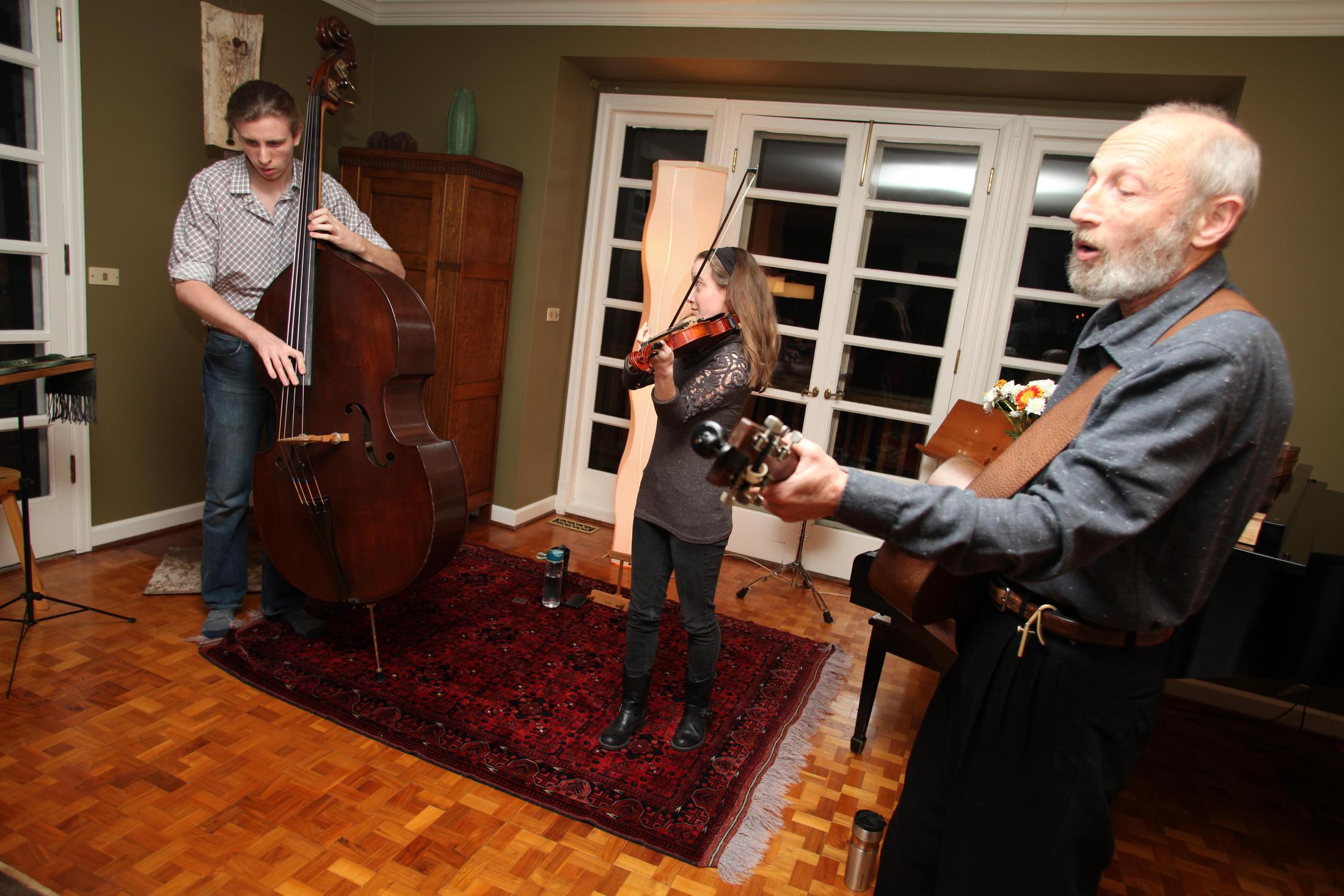

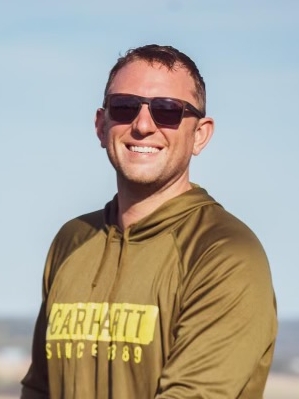
Ann Arbor native, born and raised, Adam Nemon (Class of 2003) would not label himself as the traditional “Steiner kid.” He, in fact, is a perfect example of how everyone who experiences Waldorf education ends up having a different relationship with it and how Waldorf education can have a variety of impacts on a person’s life.
Growing up, Adam began his educational journey by going to a public school for elementary school and a boarding school in California for middle school. He joined his Steiner class halfway through 10th grade and states that he was “not artsy, not especially musical, and [that] my initial impression of eurythmy was that it was quite possibly the dumbest thing I'd ever seen.” However, despite feeling different from his classmates at first, Adam soon discovered that the Rudolf Steiner School of Ann Arbor had things like acceptance, tolerance, and permission to have different ideas and perspectives in abundance. He says that Steiner provided him with the space he needed to grow into the person he was then becoming, as the small, welcoming environment provided a much-needed boost for his self-confidence. During his time at Steiner, Adam was the captain of the varsity basketball team, captain of the golf team, president of the yearbook, founder of the school’s hiking club and much more. Adam found himself with opportunities to grow, as a student and a person that he says he would “never have enjoyed at a larger public school.” In addition to everything Adam enjoyed, other school requirements such as participation in the all-school choir and the senior play, taught him the importance of being pushed out of his comfort zone which has continued to serve him well over the years.
After graduating from RSSAA, Adam began pre-medical studies at the University of Michigan but decided to put his education on hold, having been profoundly impacted by the attacks of September 11, 2001. He enlisted in the United States Army Infantry, where he was selected to serve in the 3rd Infantry Regiment. In 2005, Adam was awarded the Tomb of the Unknown Soldier Identification Badge, which at the time was the rarest award across all military branches. Following that assignment, Adam served in other high-profile Honor Guard positions, including at the White House, the Pentagon, as a casket bearer in Arlington National Cemetery, and in presidential inaugurations and state funerals.
Adam left the United States Army in 2007 to continue his education, studying Biomedical Science at Western Michigan University in Kalamazoo, Michigan. Service being a central tenant of Adam’s identity, while studying at WMU, Adam served as President of the Kalamazoo chapter of the American Medical Student Association, leading a push to expand student volunteerism in the local community and resulting in being nominated for the Kalamazoo Gazette’s annual STAR Awards. During his time in Kalamazoo, Adam also received a variety of research grants and scholarships, including one from the Society of the Honor Guard, a national organization for which Adam now serves on the Board of Directors.
Following his education, Adam found success in the Chicago area, working in the medical device field, and at one point leading a large team at Baxter Pharmaceutical. In need of something more fulfilling and space to continue personal growth, Adam left that industry and relocated to a quaint town of 800 in western Illinois. Adam and his wife Rachel are raising their five children on a 1,200-acre horse ranch in rural Elizabeth, Illinois, just a stone’s throw from the Mississippi River. He credits his RSSAA education for many of the things he now finds so vital to a well-rounded childhood, such as a connection to nature, art, music, theater, and most importantly – embracing and accepting each child’s uniqueness. Living in a small, rural community, Adam is determined to ensure his family remains exposed to diverse ideas, cultures and people. He achieves this through frequent family travel but also by supporting the arts locally, including as Vice-President of Timber Lake Playhouse, the oldest summer stock theater in Illinois. This, by the way, after pledging to anyone who would listen that the 2003 RSSAA senior production of Shakespeare’s As You Like It would be the first and very last time he ever stepped foot on a stage. Perhaps Adam was a “Steiner kid” all along.
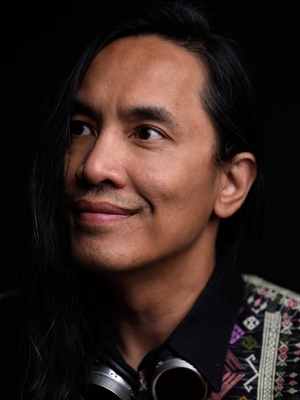
Bryan Thao Worra is a talented Laotian American writer, poet and community activist and has forged a path connecting experiences of refugees with the restorative aspects of writing. Born in Vientiane in the Kingdom of Laos, Bryan was adopted at three-days-old by an American pilot named John Worra, who flew for Royal Air Lao. He arrived in the US six months later and eventually settled with his family in Saline, Michigan. Bryan joined the Rudolf Steiner Lower School in its fledgling years (early 1980’s), when the school had mixed grades and only two classrooms. After graduating from 8th grade at RSSAA in 1987, he attended Saline High School and Otterbein College.
Bryan’s leadership in the Lao and Hmong writing community was acknowledged at the Library of Congress on May 2, 2022, in recognition of Asian American and Pacific Islander Heritage month. Appreciating his accomplishments, our school contacted him to learn about his thoughts on his Waldorf education and how it impacted his learning experience and his ideas around the arts and advocacy.
Your work over the last 20 years has focused on refugee resettlement and the arts. Can you tell us how you’ve connected with refugees through your writings and the Southeast Asian diaspora?
The last two decades have taken me across the globe, searching for others who were scattered in the diaspora that followed the end of the Southeast Asian conflicts of the 20th century. I'd understood that many of the elders who were so fundamental to understanding how and why we are in America were passing away even as the younger generation didn't always know how to ask the questions, they needed to preserve their family and community histories. In the United States, and in many parts of the world, those who don't understand their roots are often among the most easily exploited and many will find themselves adrift if they cannot understand who they have been, and how to express a future they see themselves in.
One aspect of my process has involved committing to a range of stories, poems, artworks and presentations on both the historical and the wildly imaginative, the cosmic and the everyday and to encourage my fellow refugees to consider different ways of expressing their own experiences and dreams. To give them the freedom to feel that it's ok to risk and to write more than one story, one poem, one idea to pass on to the next generation.
You joined RSSAA as a very young person. What do you remember about your experience with Waldorf education that has shaped your poetry and writing, or you as a person?
At first, it was a startling experience, but a wonderful challenge engaging both my logical and creative sides. Our teachers there helped me find the confidence and initiative to direct my own learning and response to given lessons. One of the most important parts of that experience was creating my own textbooks. That absolutely impacted how I eventually made chapbooks and poetry collections later, and my enthusiasm for having experience on all sides of the publishing process. RSSAA prepared me for high school and college in such a way that I often felt way ahead of my peers and even a little out of place, enthusiastically seeking knowledge and ideas to share with others. It was always surprising to meet others who didn't have that energy and motivation. My years with RSSAA encouraged me to form lifelong friendships and to explore the deep connections between everything and to see my own experiences had a relationship to it all.
What role did the arts play for you as you grew up?
Growing up there weren't many books about my culture and my heritage in the encyclopedias or in popular culture. There was no clear timeline that helped me understand those essential questions: "Who am I? Where do I come from? Why am I here? Where are we going?" The arts provided a way to [take] risk[s], and to experiment, to pose questions. They weren't legal depositions but could often touch on great truths while I explored the questions of my identity and what it might mean to reconnect with others to rebuild our community after the war. Initially, this was often a rather non-linear process, but it became essential, much like the process in solving a jigsaw puzzle.
Do you have advice for young people who want to pair the arts with advocacy?
There are many ways to articulate a vision for a better world. Sometimes by showing a new model of possibilities, sometimes through warnings of unintended or even intended consequences. Each technique has its uses and limitations, and an artist will always face a particular risk with advocacy: Do we reinforce the existing arguments or dismantle them for something better? Pushback is possible with both. We have to commit to learning as much as we can on a given issue, and then we have to give ourselves permission to risk a new way of expressing what matters to us. And sometimes, an artist must find ways to avoid the inertia that comes from waiting for "the perfect" and instead seek "the good" and "the necessary" at a given point of time. As you get started, the key thing to remember is that you don't need to be the last word, but a word that gets the conversations started to create change.
To watch Bryan’s program with the Library of Congress, please follow this link.
Since this interview was conducted, Bryan was selected to present at the International Singapore Writers Festival in November 2022 and at the 2023 GEN CON Writers Symposium in Indianapolis. His new book American Laodyssey, in collaboration with Bay Koulabdara, will be released later this year from Sahtu Press and looks at 30 years of his poetry.
This August, Bryan will serve as the curator of the Laomerica 50 exhibit at the Minneapolis Central Library for a special two-month exhibit for the very first time.
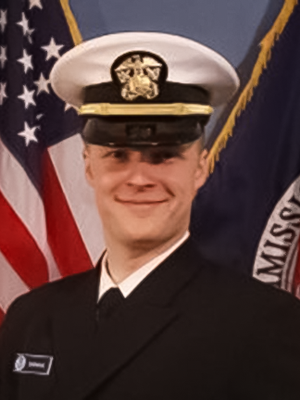
Gavin attended the University of Michigan College of Engineering from 2006-2011, and in 2012 was accepted into the National Oceanic and Atmospheric Administration Commissioned Officer Corps.
When asked what brought him to NOAA, Gavin replied, “I have always enjoyed scientific fieldwork. What the NOAA Corps does is operate the research ships and aircraft of the National Oceanic and Atmospheric Administration. The Corps also fills administrative and liaison positions between various scientific agencies around the United States. We spend time making science happen in the field, which is exactly what I love doing.”
After spending about three years on an ocean-floor mapping ship, Gavin was assigned as the Station Chief of the Atmospheric Baseline Observatory in American Samoa. The Baseline Observatory is one of six observatories owned and operated by the Global Monitoring Division of NOAA's Earth Systems Research Laboratories. The mission of the Global Monitoring Division is to understand, through long-term observations, the changing of the Earth's climate. As the sole employee at the Samoa Observatory, his duties are to take daily measurements, air samples, and to keep the instruments operational. After spending a year in American Samoa, Gavin spent a year "wintering over" at the South Pole Observatory (Amundsen-Scott Station).
“I feel my Steiner education gave me a love for the hands-on aspects of life. I love to get involved and see what's around the next corner. More than anything, however, Steiner education gave me a taste of everything. When I was a lost college sophomore who didn't want to pursue computer science anymore, I could fall back and say, ‘What did I really enjoy studying?’ What came to mind was studying weather and geology with Geoff Robb (RSSAA HS Faculty member). From there I ended up getting a degree in Earth Systems Engineering and here I am today!”
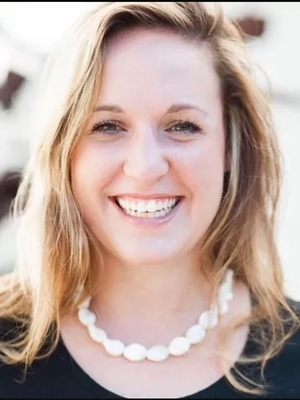
Erin attended the Steiner School from kindergarten through high school and went on to Dickinson College where she majored in International Relations. Having decided that she wanted to focus on the Middle East, she spent her junior year in Amman, Jordan—she was there during the beginning of the Arab Spring—and, after returning to Dickinson and graduating in 2012, moved back to Tunisia and then to Jordan.
Her wanderlust started during her junior year of high school, when she lived in Germany for the winter term. The experience, “Gave me a whole new perspective. My Steiner education made me a globally minded citizen, without me even being aware of it; the type of history we studied, the myths we learned, the languages...” She credits all her teachers for instilling this viewpoint, but especially Mrs. Amrine. “Both in her teaching style and how she sees the world, she definitely cultivated a the-world-is-your-oyster mentality. Go out and enjoy it.”
In Tunisia she taught English to students of all ages, working for AMIDEAST, an American non-profit whose mission is to build mutual understanding and cooperation between the peoples of the United States and the Middle East and North Africa. It was there that she “got passionate about teaching” because she saw how inadequate their educational system was. Unlike at Steiner, she found that, “A lot of these kids were never told, by parents or teachers, ‘You can do this.’ I can’t imagine any of my teachers not empowering me in grade school. When I was in Jordan they were trying to figure out how to teach non-cognitive skills, such as passion, determination and empathy, things that as a Steiner student sort of evolved for me. Miss Honor was my main lesson teacher and I had a very, very close relationship with her. What teachers aren’t ever given enough credit for is how big a role they play in the development of these skills. You’re learning by example, as well as through activities. Other than my parents, that was the person I was around the most when I was growing up. I’m glad I was around someone like her, who was very kind and loving and had all these qualities.”
She is an experienced writer, brand builder, and content marketer. Over the course of her career, Erin has worked around the world, helping startups to well-established companies grow their businesses. As a consequence of her diverse experiences, she has gained a variety of skill sets in communications, marketing, project management, and coordination.
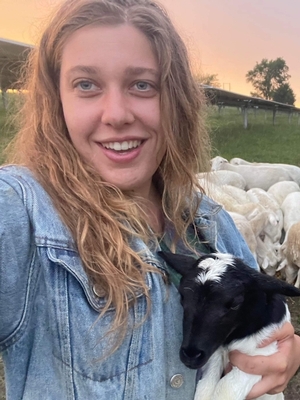
Emily Mauntel, Class of 2015, is making big strides in the solar farm and livestock industries. After noticing how the land under solar panel arrays would be perfect for grazing livestock, Emily came up with the idea of combining those two things on the same plot of land. Conveniently enough, Maharishi International University, Emily's alma mater, already owns land upon which a solar farm stands. Emily approached the company who operates the solar farm, Ideal Energy, as well as the university, and got permission from both to try out this idea. After a successful year of solar sheep, Emily plans to continue ranching and is hoping to pass her solar grazers onto the next person who wants to support this new agribusiness model.
To read more about Emily and her solar grazers, check out this article by AgriSolar Clearinghouse
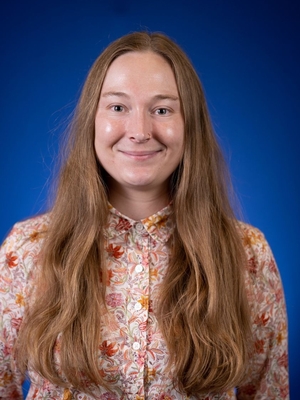
Angela Wiley (Class of 2012) has been working hard at the University of Michigan to complete her PhD in Health Infrastructures and Learning Systems (HILS). Her program aims to improve the health of individuals and populations by developing researchers who design, implement, and evaluate innovative change and continuous improvement in health systems.
Angela's research focuses on improving health equity in low- and middle-income countries, currently, Ghana. She works with stakeholders to determine local barriers and with facilitators impacting the successful deployment of whatever health improvement behavior is attempting to be implemented. From there, a tailored program is developed with implementation strategies to improve success of deployment, measured and adjusted as needed, with feedback from the stakeholders and target population. Angela approaches this work from qualitative and quantitative perspectives, relying on interviews and focus groups to increase her understanding of the local barriers, facilitators, and culture, as well as, use of information gained from computable knowledge, like health informatics from a health record. All this information is utilized to ensure the developed intervention is efficacious and sustainable, as well as, relevant to the target population.
Angela states: "I truly credit my educational experience at Steiner for my success, both academically and within my career. The wide breadth of knowledge I was exposed to at Steiner, as well as, all of the life-changing trips I attended, all provided me with the necessary skills to think not just critically, but also sensitively, and problem solve during complex situations, as well as, allowed me to truly value different cultures and see that from a global health perspective, it is just as important for us here in Ann Arbor to learn certain health practices from Ghana, as it is for them to learn certain practices from us. I loved my education at Steiner and I wouldn’t change a thing. Go Storm!"
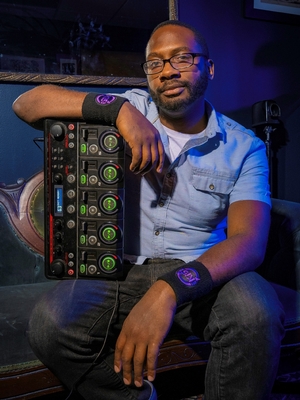
Born and raised in Ann Arbor to a musical family, Kyler began his musical journey at a young age by playing violin. Being the youngest of five with all of his other siblings involved in music in one way or another, it was a natural happenstance that he followed in the family’s musical footsteps. He attended RSSAA from 1999-2006 where he enjoyed the integration of music in Waldorf education through the constant practice of learning and performing many different kinds of choral music as well as playing multiple instruments.
By 10th grade Kyler had discovered a cappella choirs, which were unlike the choirs at Steiner, and had joined one himself. From skills he learned and practiced in that first group and upon entering Michigan State University where he studied computer engineering, Kyler auditioned and got into a MSU a cappella group called State of Fifths. He served for 3 years as a co-music director and won ICCA (International Championship of Collegiate A Cappella) awards for arranging, beatboxing, and choreography. This furthered Kyler’s interest “to create and explore the human voice.”
Upon leaving State of Fifths and feeling frustrated by the constraints of only having one voice and a guitar and being unable to bring to life the harmonies and expressive percussion that were living instead his head, Kyler purchased a BOSS RC-505 Loop Station. The loop station allowed Kyler to “release all the sounds I wanted to hear in an instant and then have them build on one another like I could with [a] room full of versatile singers.” He states that “It’s the art of leaving yourself behind to create something more beautiful in how it relates to what was there before.” Soon after he got his looping station, Kyler performed for a group of friends in a living room and Ki5 was born.
Since April 2015 Kyler has been continually improving both his live and recorded looping styles and techniques. He performs at Southeast Michigan music venues, weddings, and schools (including at RSSAA for the High School’s Michaelmas celebrations). Kyler also is on staff at Neutral Zone, an Ann Arbor teen center. There he teaches some of the music-based programs Neutral Zone offers teens for free. He states that “one of [his] favorite things [he] gets to do now as Ki5 [is to] be in a classroom, showing young people what they didn’t know was possible,” and that his goal is for his “music to go further and enhance other art forms.” Attending RSSAA gave Kyler “an appreciation for art in all its forms from an early age,” and the opportunity “to witness a wide variety of skilled individuals who had a passion for sharing what they knew with young people.”
For more about Kyler Wilkins aka Ki5 check out his website and find him as ki5loops on various social media and music streaming platforms.
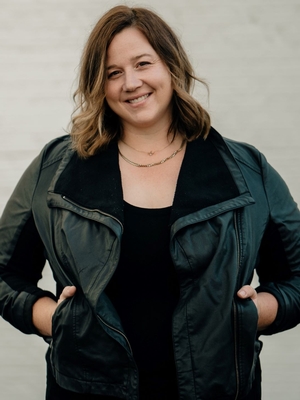
Ashlea was part of the first group of students at the newly opened Rudolf Steiner HS on Packard in the Genesis building. She moved from Milwaukee after many life-changes, including the death of her sister. Mary Emery and Geoff Robb, the founding teachers at the HS, encouraged a community of learners that respected and supported each other. Their caring, but firm style along with Ashlea’s close relationships to classmates, evoked a feeling of family that helped her navigate school, life, and work.
After graduating in 2001, she attended Eastern Michigan University, earning degrees in Communications and Psychology. While attending college, she worked part-time in the front office of the new high school campus, connecting with students, and even meeting her future husband when he was delivering lunch to his sister! After college, her passion to help people emerged while working at a real estate agency in low-income housing, helping families find stable housing and resources.
Drawing on her appreciation of her Waldorf education, Ashlea found herself back at RSSAA helping with special projects and eventually building the RSSAA Alum program with the fundraising team. Her children were part of the early childhood program and she’s reconnected with other alums who now have their children at RSSAA.
Her desire to help people led her to pursue a master’s degree in clinical social work, all while working at RSSAA and raising her three children. This August, she will begin her new career as a clinical therapist in a private practice in Ann Arbor, where her focus will be on working with adolescent and adult mental health.
Ashlea is still connected to many of her Steiner friends and has made meaningful friendships throughout her time working at RSSAA. She feels her pull to social work is deeply connected to her time at Steiner, where she had the privilege of truly getting to know her classmates and teachers, being encouraged to be herself, and learning the importance of helping others.
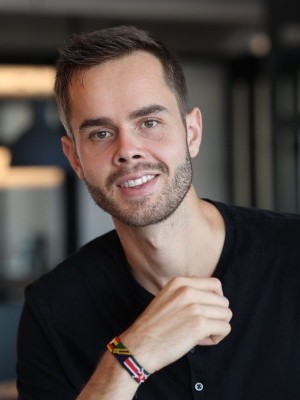
After graduating from Bard in 2014 with a degree in Economics, Nico got his first job in finance at Morningstar in Chicago. He did research and built stock portfolios with that company for over 5 years. He had opportunities to work in Mumbai, India and throughout Europe, eventually helping to build out a division for the company. Providentially, a friend of his introduced him to Benjamin Fernandes, from Tanzania, who was looking to help his fellow Africans more easily and inexpensively make financial transactions abroad. Nico was searching for an opportunity to find work that meshed with his values, in which he could use his finance expertise, and soon a partnership was born.
Nico took a leave of absence and he and his business partner were admitted into a select program called Y-combinator, in which promising businesses receive an intensive 3-month mentorship from successful entrepreneurs to organize and launch a company. Out of this program in 2019 they were able to raise an initial $2 million to launch Nala, a company that increases economic opportunities for Africans worldwide enabling them to send money abroad inexpensively and digitally. Their business’ name represents a lioness, who is the financial caretaker of the family and a familiar main character in the Lion King.
Nico is the COO of Nala, living in Nairobi, Kenya, and oversees product, operations, finance, treasury, and compliance functions. Nala is now on a growth trajectory and has raised another $10 million and they have 22 employees. They do business in Africa, the UK and now the US.
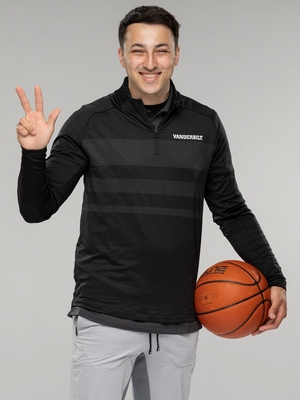
David attended Detroit Waldorf School through 8th grade and decided to extend his Waldorf education through high school at RSSAA. He immersed himself in the sports opportunities in high school and found a passion for basketball. As an undergrad in the residential college at MSU, David gravitated towards the basketball program and became the student manager for women’s basketball while pursuing a Communications major and German minor. As a senior in 2018-19, he served as the head manager and the program’s interim video coordinator while the Spartans reached the second round of the NCAA Tournament as a No. 9 seed.
Professional relationships he built during this time lead him to Missouri State where he balanced getting a masters in Sports Management and video coordinator for the women’s basketball team. David has found that his ability to cultivate relationships and a diligent work ethic has helped him navigate his career path. His experience in a non-traditional school like RSSAA and DWS set him up to appreciate his non-traditional work environment. The real teamwork that happens at work is especially fulfilling. He is now the video coordinator for Vanderbilt’s women’s basketball team and loving it.
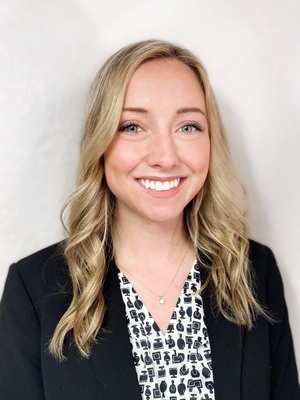
Hannah has had an interesting path as she pursued a degree in Marketing and Sales and currently an MBA at the University of Toledo (UT). While at Steiner, Hannah enjoyed participating in all the sports teams and this was an area she volunteered and worked in while attending college. Using her skills in community engagement, she worked or volunteered for the minor league teams of Toledo Mudhens and Toledo Walleye. This involved promotions during half-times, on-court competitions and anything related to the fan experience. Doing sports in high school built her confidence and fulfilled the “fun” factor. These experiences allowed her to see all the processes that go into getting people to the game.
Her Steiner education gave her the confidence to strike up a conversation with anyone as she’s gone on many unique field trips, travelled to Italy, played violin, understands another language and studied all the sciences. Her strong problem-solving skills she attributes to the creativity that was developed at Steiner. She noticed that peers from her generation have a harder time doing this.
Currently, Hannah is putting her organizational, communication and social skills to use as she transitions from an intern at the University of Toledo Foundation to a full-time Development Coordinator, helping to raise money and steward donors.
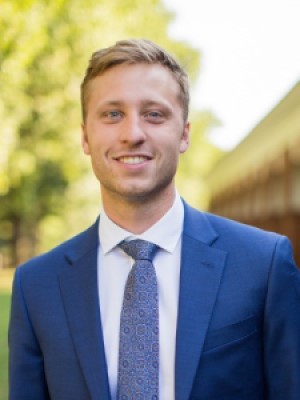
Benjamin currently works in Management Consulting, supporting clients in the National Security industry in Washington D.C. After graduating from the Rudolf Steiner High School in 2015, he received degrees from Centre College and the University of Virginia, with majors in Political Science and Public Policy. He credits RSSAA’s broad, liberal arts education and small school setting, for giving him the tools to be successful in college and the workplace.
Although he felt his artistic skills in high school were not very strong, the creative process really helped him think about issues in an atypical way. During college class discussions or in his consulting work, he realized that the solutions he would suggest were recognized by his classmates, teachers and colleagues as “out-of-the-box”. This has made him stand-out and seen as vital participant in determining solutions for implementing public policy.
In our small classes and caring community, he felt supported to examine issues from many points of view. This spirit of community extended further for him, as he participated fully in all the sports offered at the high school. He even started the tennis program for the years he was at the high school.
During the pandemic, his appreciation for his Steiner education was amplified as he re-claimed some of his creative Steiner experiences to balance the isolation. He remembers his time in Ann Arbor very fondly, and still tries to make it back every year for the spring Golf Outing.
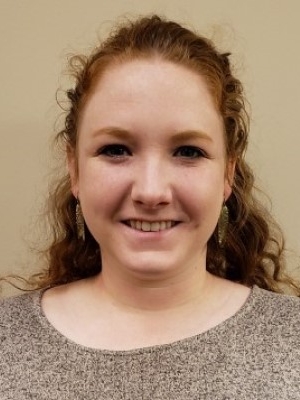
After receiving her liberal arts degree in Dance and Political Science from Loyola Marymount University in LA, Emmeline travelled to Soweto, South Africa for a service abroad program that focused on helping those suffering from HIV. She came back from that experience knowing she wanted a career where she had the opportunity to help people.
Indeed, she helped RSSAA briefly in the early childhood program, and then worked in marketing and communications at Thrivant Financial, a Christian fraternal organization that provided members with financial education and grant opportunities.
She cultivated her digital communication skills there and found her passion for social services.
After brief stints at Kiwanis and the Shelter Association, she found a good culture fit at Hope Clinic in Ypsilanti. As at many non-profits, Emmeline wears many hats. She started in marketing, but since the pandemic, helps to grow the Food Assistance program, where she works with community organizations and volunteers to match them with their passions to serve. As the Board President of Interfaith Council for Peace and Justice, she helps build resilient community structures.
She credits her Waldorf education with the willingness to dive into new tasks, even if she has very little experience with it. At RSSAA one studies many subjects, even if you aren’t good at them. Through this she learned to not be afraid of failure. Her ability to write and summarize complex ideas and break them down was a weekly practice in her Main Lesson books and has served her well in social media communications. Even more so, the cultivation of compassion and recognizing the human soul in each person, prepared her to engage with people of many backgrounds and cultures in her work.
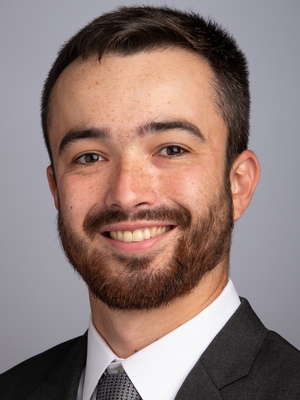
Koji always had a passion for sports and was part of all the sports that RSSAA had to offer. He had foundational relationships with several RSSAA coaches that sparked his interest in sports as a career. As an undergrad at Kalamazoo College, Koji became the student manager of the Men’s Basketball team and he got to experience how a division 3 team functioned. With his Business degree from Kalamazoo and his drive to coach, he found a job as freshman head basketball coach at Dexter and shortly after that worked at the MSU sports summer camps.
Using his networking skills in both those roles, he became a graduate assistant for EMU’s Men’s Basketball team and at the same time received a Masters in Sports Management. His college alma mater reached out and he spent the 2020-21 season at the Kalamazoo College’s Mens’ Basketball program assisting in recruiting, scouting, travel and on-court coaching.
Pursuing a career in sports and coaching means wearing many hats, a willingness to jump into anything when needed, and juggling multiple jobs. Koji found that his Waldorf education set him up to immerse himself in the unknown with the confidence to know he could figure it out. He is now working for the University of Wisconsin – Oshkosh, a division 3 school, as an assistant coach for men’s basketball.
Alum Community
We welcome all alums, alum parents, former and current faculty and staff from Rudolf Steiner School of Ann Arbor to join the Waldorf Alum Connect community.
Alums act as key ambassadors around the world and your endeavors can inspire our students and parents. Whether you are constructing a path in science, business, tech, public service, academia, or the arts, we want to help you stay connected with each other, the school’s mission, and Waldorf graduates everywhere.
The goal is simple: support Alums professionally and personally, and have fun while doing so.
Waldorf Alum Connect community
Join the Waldorf Alum Connect community to find networking opportunities within the wider Waldorf Alum community in North America. This is a great way to keep in touch and expand your networking circle!
Also, join us for special alum events like the Annual Reunion, keep us up to date on all your accomplishments, and follow us on our social media!

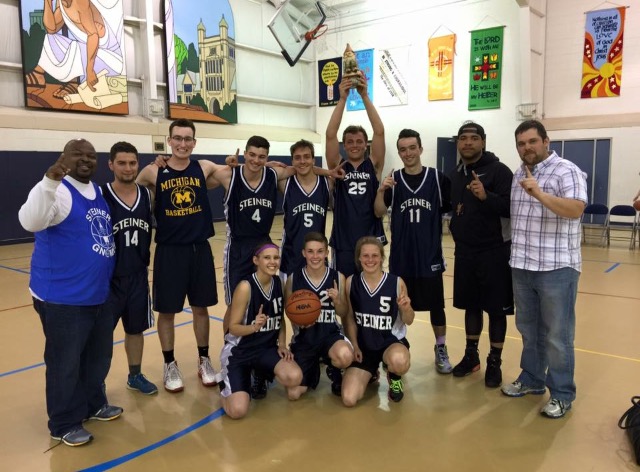
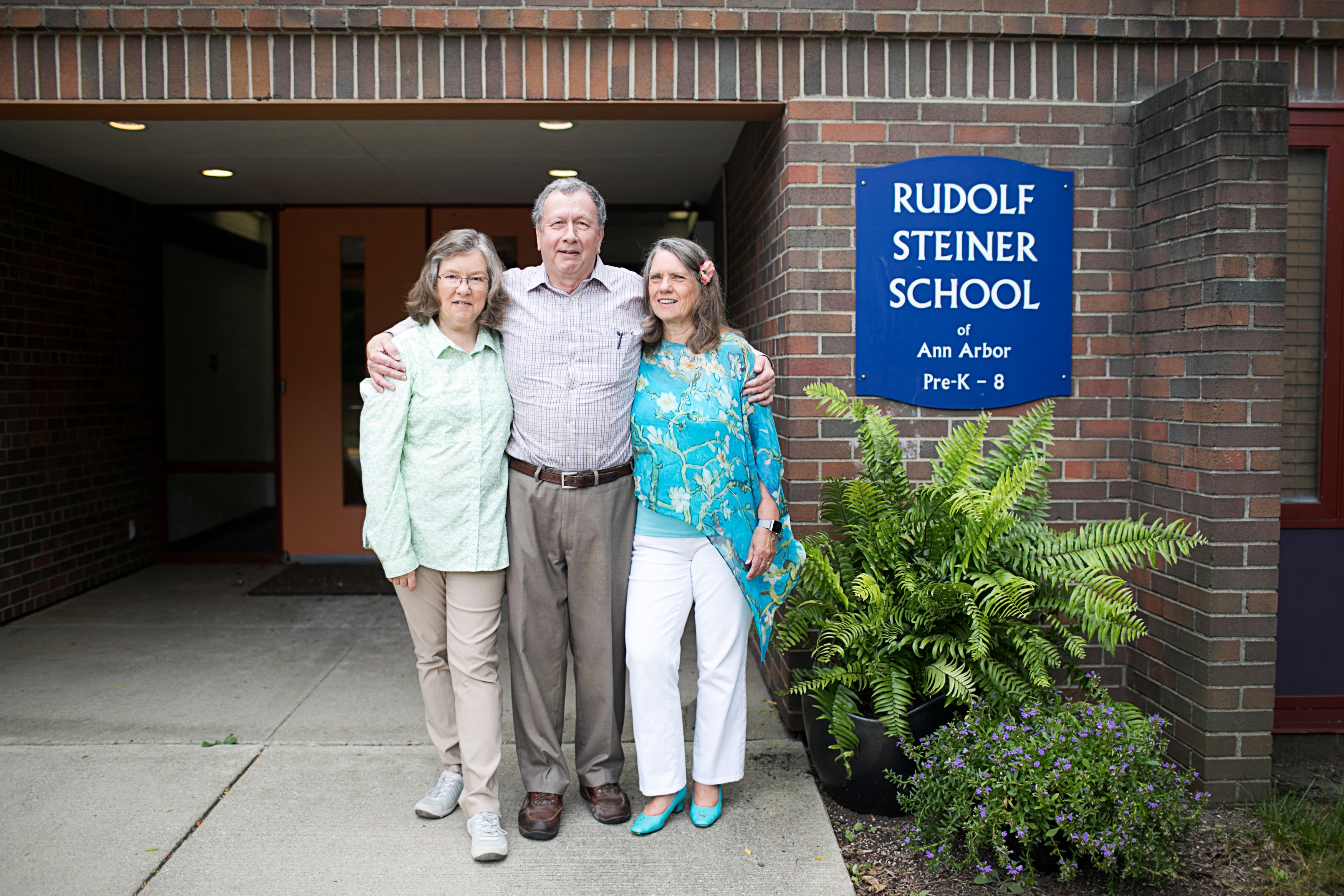
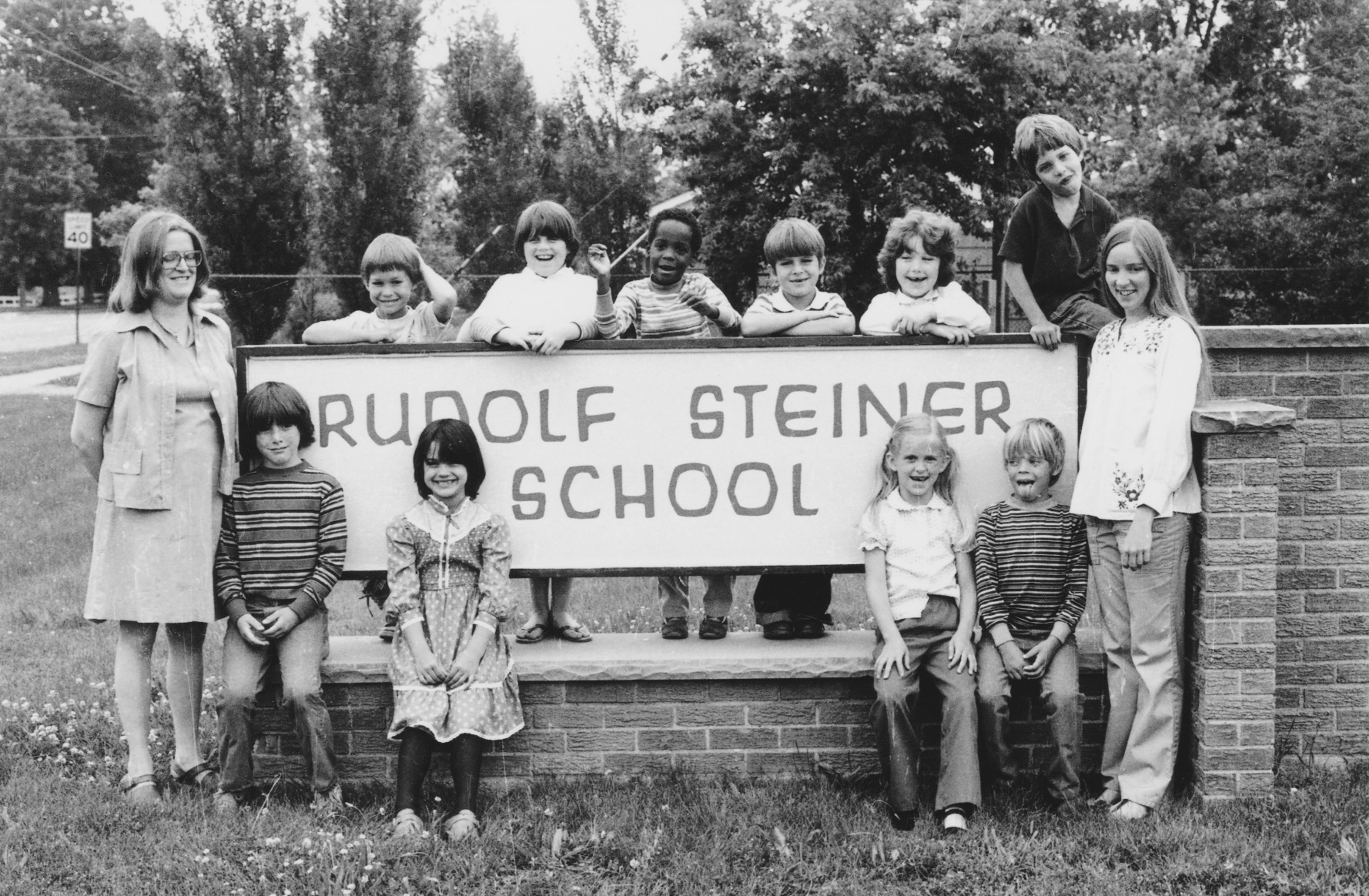
.jpg)
